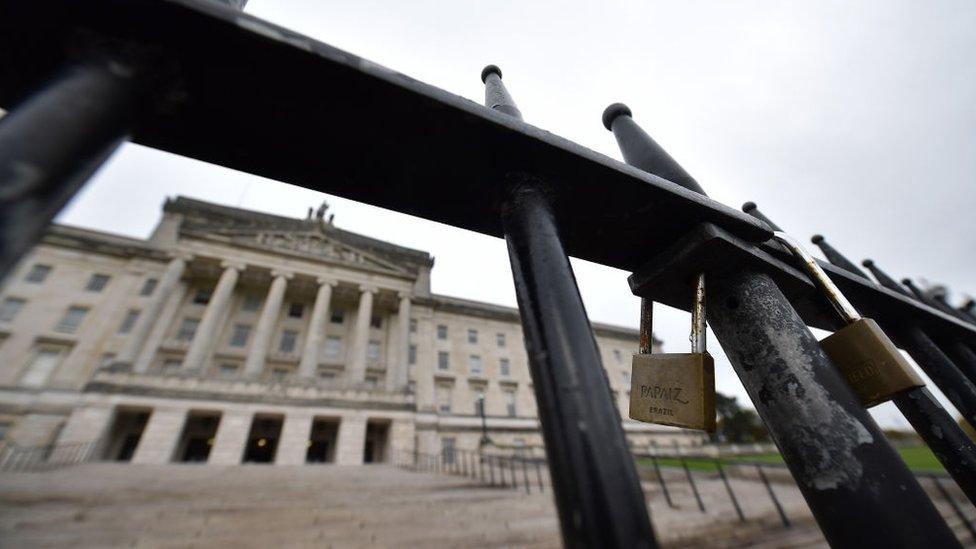Stormont: Northern Ireland public services face £500m cuts
- Published
- comments
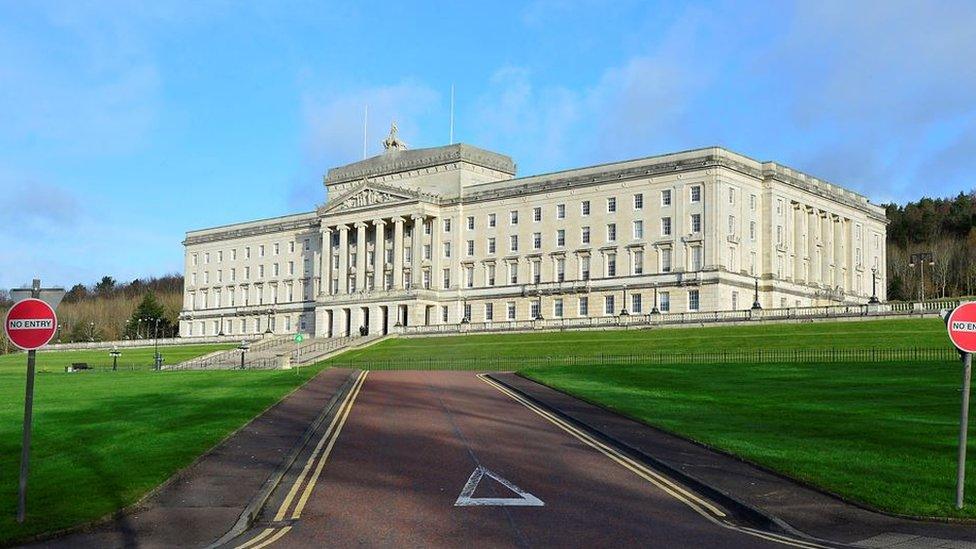
The assembly is still in place despite the collapse of the executive
Public services provided by Northern Ireland Executive departments face cuts of at least £500m in the new financial year.
Inflation will further magnify the impacts of those cuts.
Part of the reason for the falling budget was the need to bring forward about £330m to this financial year to deal with an overspend.
Stormont spends about £14bn a year with the bulk of that going to health and education.
In the absence of an executive it will be up to Secretary of State Chris Heaton-Harris to make final budget decisions.
Officials are expected to present Mr Heaton-Harris with option papers in early March ahead of the new financial year in April.
All options are likely to be very challenging with difficult and painful cuts on the agenda.
It's understood officials are working on the basis that efficiencies will not be enough and consideration will be given to reducing the scope of some services.
One decision to be taken would be whether to continue protecting the Department of Health budget at the expense of other services.
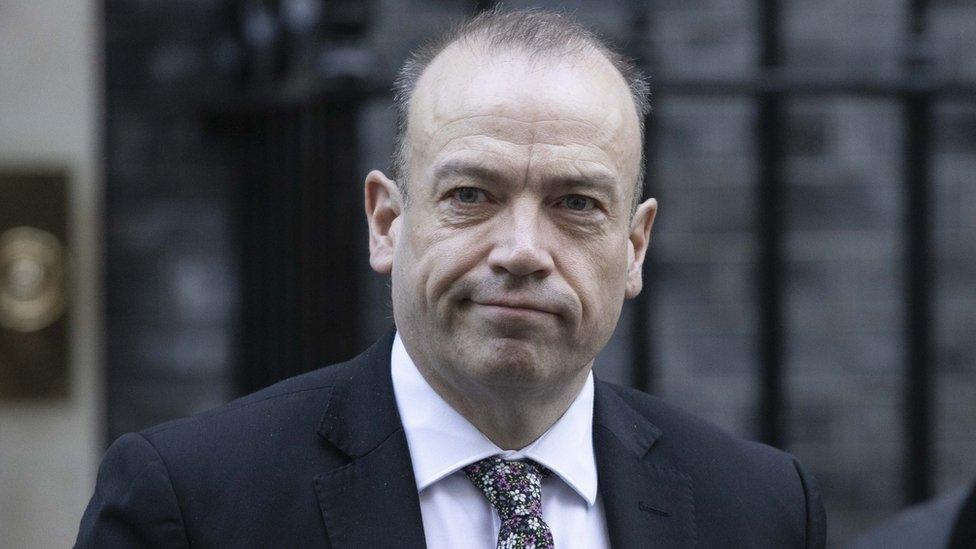
In the absence of an executive it will be up to Secretary of State Chris Heaton-Harris to make final budget decisions
Stormont has limited revenue raising powers - the main one is the regional rate, which is a tax on domestic and commercial property.
However, raising the regional rate by 10% would only add about £30m to the budget.
It's understood Mr Heaton-Harris has asked officials to look at Northern Ireland's "super parity" measures.
He has previously spoken of the need to "consider wide-ranging options for revenue-raising".
Super parity refers to policies where people and businesses in Northern Ireland get services with reduced costs and charges compared to the wider UK.
The major super parity measure is not paying directly for domestic water supplies, which the NI Fiscal Commission has estimated to be worth £345m.
There would not be time to introduce water charging in the next financial year.
It is also understood that public sector redundancies are not currently on the agenda, not least because that would also come with a cost.
The last major round of redundancies were funded by using Stormont's limited borrowing powers.
However, a recently announced PSNI recruitment freeze may provide a clue to the sort of measures which may be under consideration.
The major factor which could change the Stormont budget arithmetic is the outcome of the UK budget on 15 March.
If the chancellor of the exchequer was to announce an increase in spending on services in England that would also increase funding in Northern Ireland.
Related topics
- Published24 November 2022
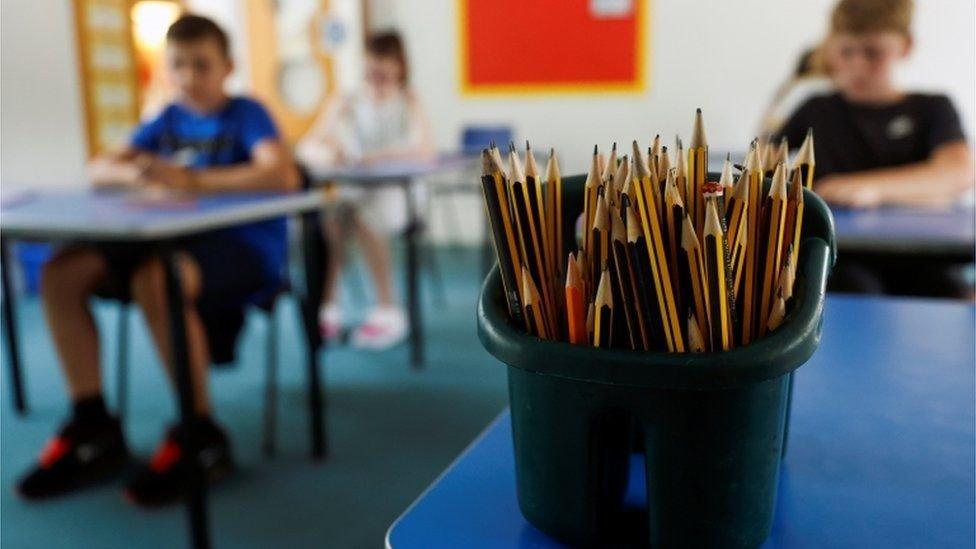
- Published11 October 2022
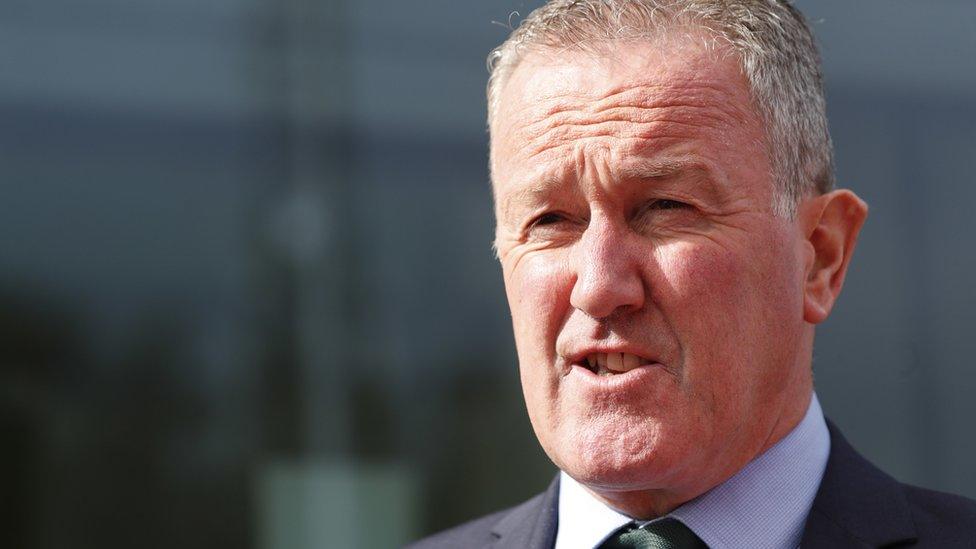
- Published8 November 2022
